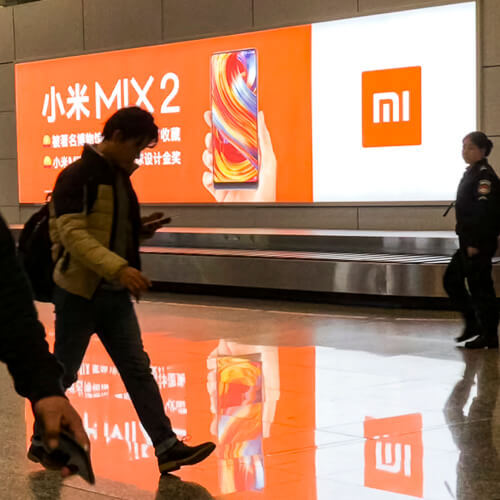A security report found one Xiaomi phone had built-in censorship tools, and also points to security flaws in a Huawei device.

Things had been going so well for rising Chinese technology star Xiaomi. The smartphone maker recently produced another blockbuster quarter, in part helped by the retreat of Huawei in the face of US-led sanctions.
It has also been rising high in smartphone OEM rankings. Furthermore, in May Xiaomi managed to achieve a rare victory by persuading the US government to set aside a Trump administration blacklisting that could have restricted American investment in the manufacturer.
Figure 1:  On yer bike: Lithuania wants Xiaomi to leave on the horse (or plane) it came on.
On yer bike: Lithuania wants Xiaomi to leave on the horse (or plane) it came on.
(Source: keso s on Flickr CC2.0)
Lithuania's Defense Ministry now appears to have thrown a spanner in the works. According to BBC News and other news outlets, the ministry has advised consumers to throw away their Chinese phones and avoid buying new ones following a damning report from the nation's National Cyber Security Center.
Just say no
The center conducted a security investigation of three 5G smartphones from Chinese manufacturers that are sold in Lithuania: the Huawei P40 5G, Xiaomi Mi 10T 5G and OnePlus 8T 5G 5G smartphones.
Its report claimed that the Xiaomi phone had built-in censorship tools while the Huawei model had security flaws. No cyber security vulnerabilities were identified in the OnePlus device.
For example, Xiaomi's Mi 10T 5G smartphone was found to have software that could detect and censor terms including "Free Tibet," "Long live Taiwan independence" or "democracy movement." The censoring capability in the software has been turned off for the "European Union region," but can be turned on remotely at any time, the report found.
Margiris Abukevičius, Deputy Defense Minister, said: "Our recommendation is to not buy new Chinese phones, and to get rid of those already purchased as fast as reasonably possible," BBC News reported.
Abukevicius also told Reuters that the ministry has shared its report with cyber security officials from other European Union nations and the United States on Wednesday.
No censorship here
Xiaomi has robustly defended itself, telling Reuters that its device "does not censor communications to or from its users."
"Xiaomi has never and will never restrict or block any personal behaviours of our smartphone users, such as searching, calling, web browsing or the use of third-party communication software," the statement said.
Want to know more about security? Check out our dedicated security channel here on
Light Reading.
A spokesman for the manufacturer also told the news agency that Xiaomi "complies with the European Union's General Data Protection Regulation."This latest spat comes amid worsening relations between Lithuania and China. As BBC News explains, last month China demanded that Lithuania remove its ambassador from Beijing and said it would withdraw its envoy from Vilnius.
The row began when Taiwan announced its missions in Lithuania would be called the Taiwanese Representative Office. Other Taiwanese embassies in Europe and the United States use the name of the country's capital city, Taipei. This enables them to avoid referring to Taiwan, which China claims as its own territory.
Related posts:
— Anne Morris, contributing editor, special to Light Reading
About the Author(s)
You May Also Like










